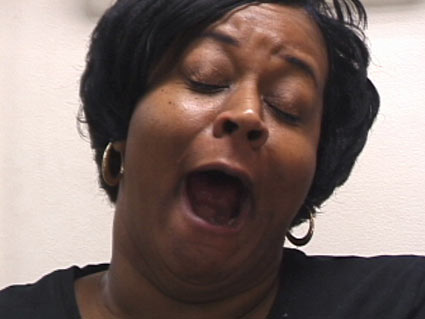Isn’t it a matter of curiosity that every human being yawn and it looks like a usual thing to us? Did you ever thought why you yawn? Now a series of experiments suggests a surprising reason for yawning. It cools the brain, say researchers at Princeton University.
Andrew C. Gallup, a research associate from the university collected the data on rats, parakeets, and humans. Interestingly all the data supports the brain-cooling hypothesis.

According to www.huffingtonpost.com the basic idea is:
1. When you start to yawn, powerful stretching of the jaw increases blood flow in the neck, face, and head.
2. The deep intake of breath during a yawn forces downward flow of spinal fluid and blood from the brain.
3. Cool air breathed into the mouth cools these fluids.
Yawning in cold atmosphere is more than that in hot

According to Gallup's theory, “Colder outside air should cool the brain better than hot air. The body should therefore yawn more when the air is cool, and yawn less when the air is hot”.
To check his hypothesis a team went to Tucson and Ariz twice, once in the winter, when it was a cool 71.6 degrees F outside, and once in early summer, when it was 98.6 degrees F.
To make people yawn, as It's well known that people often yawn when they see others yawn, researchers asked 80 pedestrians to look at pictures of people yawning.
The result was this:
In the cooler weather 45% of people yawned when they looked at the pictures.
In hotter weather, only 24% of people yawned.
People yawned more if they'd been outside longer in the cool weather.
People yawned less if they'd been outside longer in the hot weather.

Yawning is not a permanent method to cool brain
A physician from University of Geneva, Adrian G. Guggisberg, MD, also seems agree with Gallup that changes in room temperature can trigger yawning. He at the same time wary of Gallup’s ‘brain cooling theory’ stating it an alternative method to cool a brain.
Guggisberg explains, "The fact that yawning is suppressed during high temperatures suggest that it fails precisely when we need it. There are other [ways to regulate body temperature, such as sweating, and it is unclear why we would need another regulator which fails when it matters."
International News inextlive from World News Desk


.jpg)






